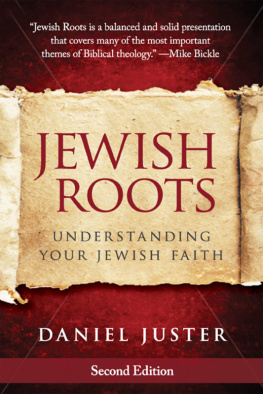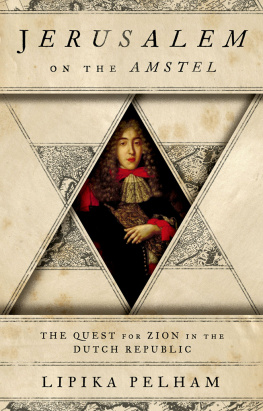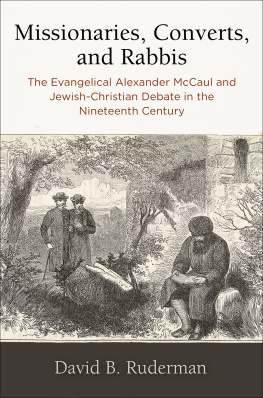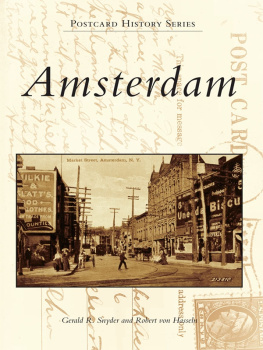
Exterior of the Portuguese-Jewish Synagogue (16391675), Amsterdam, by Romeyn de Hooghe, circa 1686. (Courtesy of the Bibliotheca Rosenthaliana, Special Collections of the University of Amsterdam)
MENASSEH BEN ISRAEL
Menasseh ben Israel
Rabbi of Amsterdam

STEVEN NADLER

Copyright 2018 by Steven Nadler. All rights reserved. This book may not be reproduced, in whole or in part, including illustrations, in any form (beyond that copying permitted by Sections 107 and 108 of the U.S. Copyright Law and except by reviewers for the public press), without written permission from the publishers.
Yale University Press books may be purchased in quantity for educational, business, or promotional use. For information, please e-mail (U.K. office).
Set in Janson type by Integrated Publishing Solutions.
Printed in the United States of America.
ISBN 978-0-300-22410-8 (hardcover : alk. paper)
Library of Congress Control Number: 2018931347
A catalogue record for this book is available from the British Library.
This paper meets the requirements of ANSI/NISO Z39.48-1992 (Permanence of Paper).
10 9 8 7 6 5 4 3 2 1
For Richard H. Popkin, zl
CONTENTS
MENASSEH BEN ISRAEL
1

Prologue: On the Houtgracht
O N A COLD , raw Monday in late November 1657, the members of the Talmud Torah congregation of Amsterdam gathered in their ornate synagogue beside the canal known as the Houtgracht to hear their chief rabbi deliver a eulogy for his recently deceased colleague. Rabbi Saul Levi Mortera began with a homily on a verse from PsalmsBless, O my soul, the Lord and everything that is within me bless his holy name (Ps. 103.1)in which he explained that outer appearances may mislead one as to the true state of a persons soul. These people may be quite beautiful to beholdfashionable, bedecked in jewels, lacking none of the accoutrements of glory and prestige... while inside they are nothing but intrigue and deceit, and every vile blemish. He then applied this lesson to the rabbi whose life he was honoring.
This tzadik [righteous person] does not need an imposing monument or sarcophagus to honor him for the sake of his position. His words are his memorial: the words in the books he wrote will preserve his memory. Indeed, the truth is that he did have an honored position; his position honored him and he it... He was a teacher and a mentor from his youth in this distinguished place, in the greatest congregations of the region. And he honored his position through his distinguished achievements, which earned him constant praise and glory and honor.
Rabbi Menasseh ben Israel had died the week before, in Middelburg, while on his way back to Amsterdam from London. After his body was brought to the city and prepared for burial by the congregations Bikur Holim society, it was loaded onto a barge and drawn along the Amstel River to Ouderkerk aan de Amstel, the small village five miles from Amsterdam where this community of Sephardic Jews had their Beth Haim cemetery. Menasseh was only fifty-three years old. He served these descendants of Portuguese and Spanish exiles his entire life and was utterly devoted both to his congregants and to the country that had given them refuge. But his final years had been difficult, filled with disappointment and sorrow.
He lost both of his sons. His business affairs were a mess and his family was in financial straits. His long campaign for the readmission of the Jews to England, as far as he could tell, had come to naught. He never was able to secure the royal patronage that would have given him the kind of stature he felt he deserved, not to mention financial security. He died probably thinking his life had been a failure.
Still, in his lifetime Menasseh enjoyed tremendous respect well beyond the confines of the Amsterdam Jewish community, beyond even the borders of Holland. In fact, he was much more highly regarded among European gentiles than among his own people. He was seen by non-Jews as a learned and accessible authority on matters of Judaica, and they did not hesitate to make use of his expertise. They especially valued him as the Jewish expositor of a common Messianic vision, wherein the worldly empires will be swept away by a Fifth Kingdom ruled by a savior sent by God. While Menasseh certainly did not share his Christian friends conviction that the Messiahs arrival will be accompanied by the conversion of the Jews, he was broad-minded enough to proclaim that Gods providential care is universal: there will be a place in paradise for all of the virtuous, regardless of religious persuasion. Even the vicious, should they voluntarily repent of their sins, would eventually enjoy everlasting salvation. In Menassehs viewdefending as he did a robust doctrine of free will and the immortality of the souleach individual is responsible for his own fate, in both the short term (including the length of his lifetime) and, more important, the very long term.
All of this theological and philosophical activitypursued through numerous books, pamphlets, and lectures, as well as a wide-ranging correspondencewas carried out with great displays of erudition. Menassehs works overflow with citations from Hebrew Scripture, Talmud and rabbinic commentaries; the writings of early Church fathers; medieval Jewish and Christian philosophical treatises; Jewish mystical texts, including Kabbalah; and ancient pagan thinkers, all marshaled to support his ideas and refute those of his opponents.
However, Menassehs broad intellectual engagements also made him suspect in the eyes of many of his fellow Amsterdam Jews. The other rabbis were unhappy with his ecumenical efforts and conciliatory attitude toward Christian doctrines. The communitys lay leadership regarded him as a bit of an insubordinate maverick and was troubled by his personal relationships with non-Jews. With his generally defiant nature, he was considered by many to be a nuisance.
There was certainly no love lost between Menasseh and his senior colleague Mortera. Menasseh chafed under the chief rabbis authority and felt he was underappreciated (and underpaid) for his sermons and his teaching. Mortera, for his part, did not have a lot of respect for Menasseh as a scholar and as a role model for his congregants. Nevertheless, in his eulogy for Menasseh he put aside their differences. He spoke of his great sorrow upon the rabbis passing, and saved his final praises for Menassehs skill as a speaker and accomplishments as a writer. His beautiful eloquence, his delightful words, were not in his mouth alone, but also by his hand, in his books which he wrote in such an elegant style... his radiance has shone throughout the world.
With these remarks, the Portuguese Jews of Amsterdam said farewell to a man who, through good times and bad, came to represent not only their community but, to so many of his contemporaries, Judaism itself. Menasseh ben Israel was, for much of the seventeenth century, the most famous Jew in the world.
2

Manoel/Menasseh
Next page










